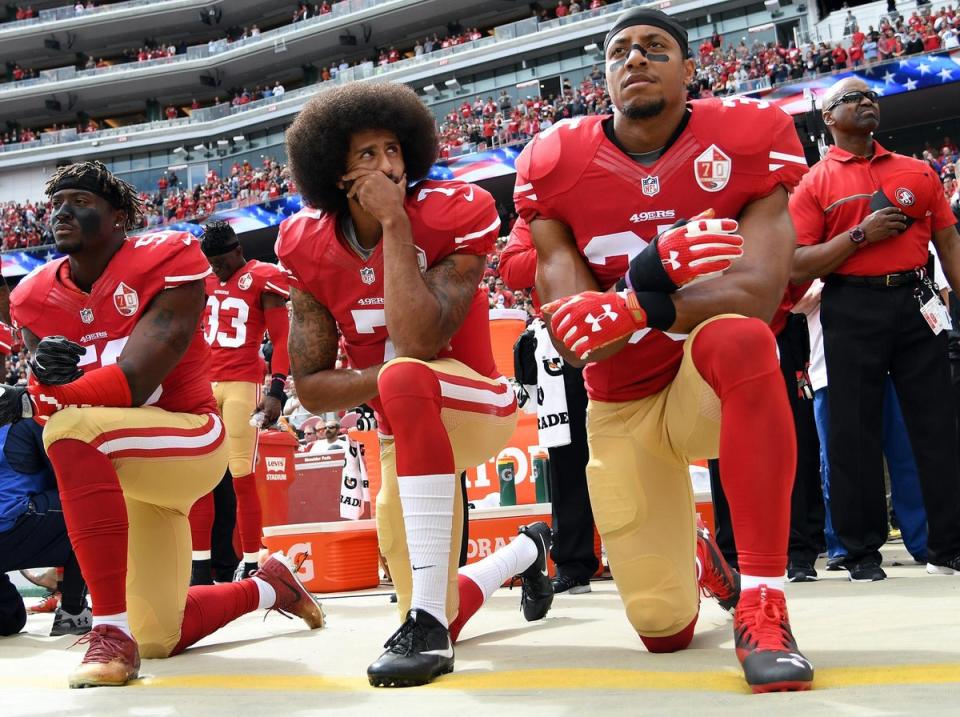Colin Kaepernick opens up about difficult run-ins over race with his white adoptive parents
- Oops!Something went wrong.Please try again later.
NFL player Colin Kaepernick has called out his white adoptive parents for what he described as “problematic behaviour” in the past.
In an interview on CBS’ Mornings to promote his new graphic novel memoir Colin Kaepernick: Change the Game, Kaepernick opened up about comments his parents Rick and Teresa Kaepernick made while he was growing up.
“I know my parents loved me, but there were still very problematic things that I went through,” he said during the interview aired on Thursday.
“I think it was important to show that, no, this can happen in your home, and how you move forward collectively while addressing the racism that is being perpetuated.”
Recounting an incident when he was a teen, which is also depicted in his coming-of-age novel, Kaepernick claimed that his mother had told him cornrows were “not professional” and that he looked “like a little thug” after getting them.
Kaeprnick, who last played in the NFL with the San Francisco 49ers in 2016, said that those types of situations were difficult to navigate but ultimately led to where he is today and his decision to embrace his Black ancestry.
“Those become spaces where it’s like, ‘How do I navigate this situation now?’ But it also has informed why I have my hair long today,” he added.
Kaepernick was adopted by his Wisconsin parents when he was a baby and they later moved to California. Back in 2016, the Kaepernicks told ESPN that they supported their son’s decision to kneel during the national anthem.
In 2015, Ms Kaepernick also criticised an article that focused on her son’s tattoos, saying he had been “made out to be a gangster” in the piece.

“It annoyed me,” she told USA Today. “You are categorizing this kid on something like tattoos? Really? ... That’s how you’re going to define this kid? It’s pretty irritating, but it is what it is.”
“Instead of saying that Colin does all these great things and donates his time to children, this guy is going to make him out like a gangster.”
Kaepernick lost his job after taking a knee during a preseason NFL game in protest against racial injustice. At the time, he was heavily criticised, with some fans even burning his jersey.
While the protest has been widely adopted, he has been unsigned ever since.
Several teams have considered signing him but have ultimately decided against it. In 2019, the league set up a workout for him in Atlanta but it ultimately fell through and resulted in no job offers.
Kaepernick filed collusion grievances against the NFL in October 2017, claiming he was blacklisted, and reached a confidential settlement in 2019.

He has since started a number of civil rights initiatives, including his Netflix series Colin in Black & White, several “know your rights” workshops for young people and a publishing company focused on activist literature.
He also offered to provide free autopsies in police-related death cases.
Kaepernick came under fire again for comparing the NFL’s recruiting to the purchase of slaves by training camps in his Netflix documentary,
“What they don’t want you to understand is what’s being established is a power dynamic,” he said. “Before they put you on the field, teams poke, prod and examine you searching for any defect that might affect your performance.”

